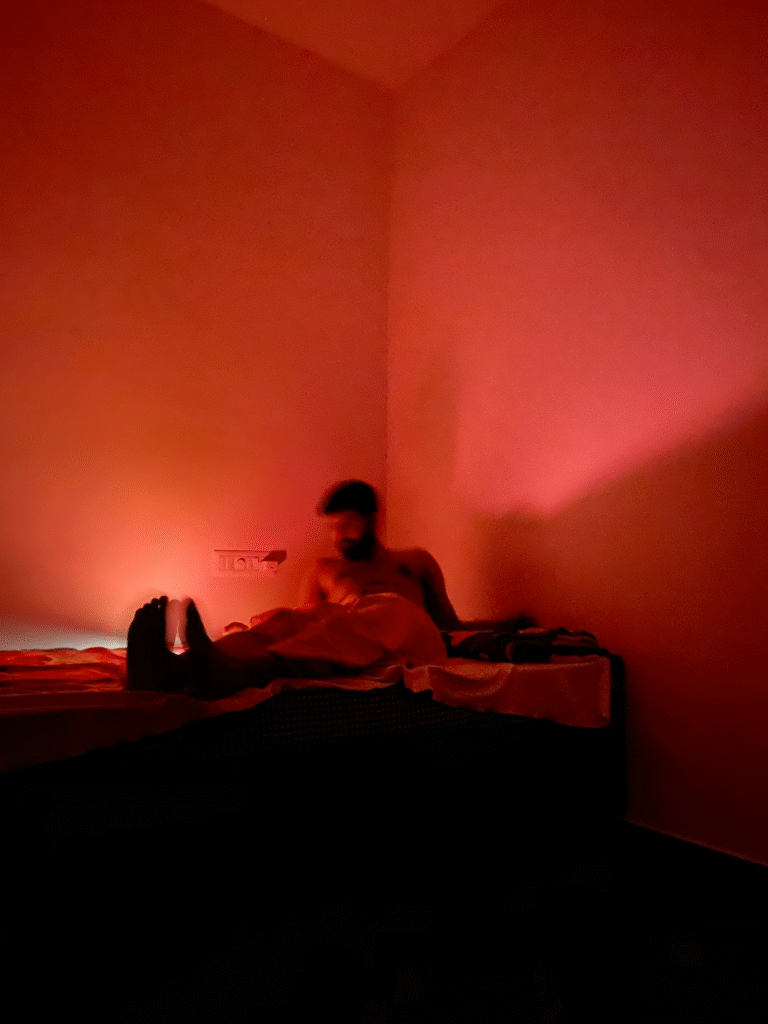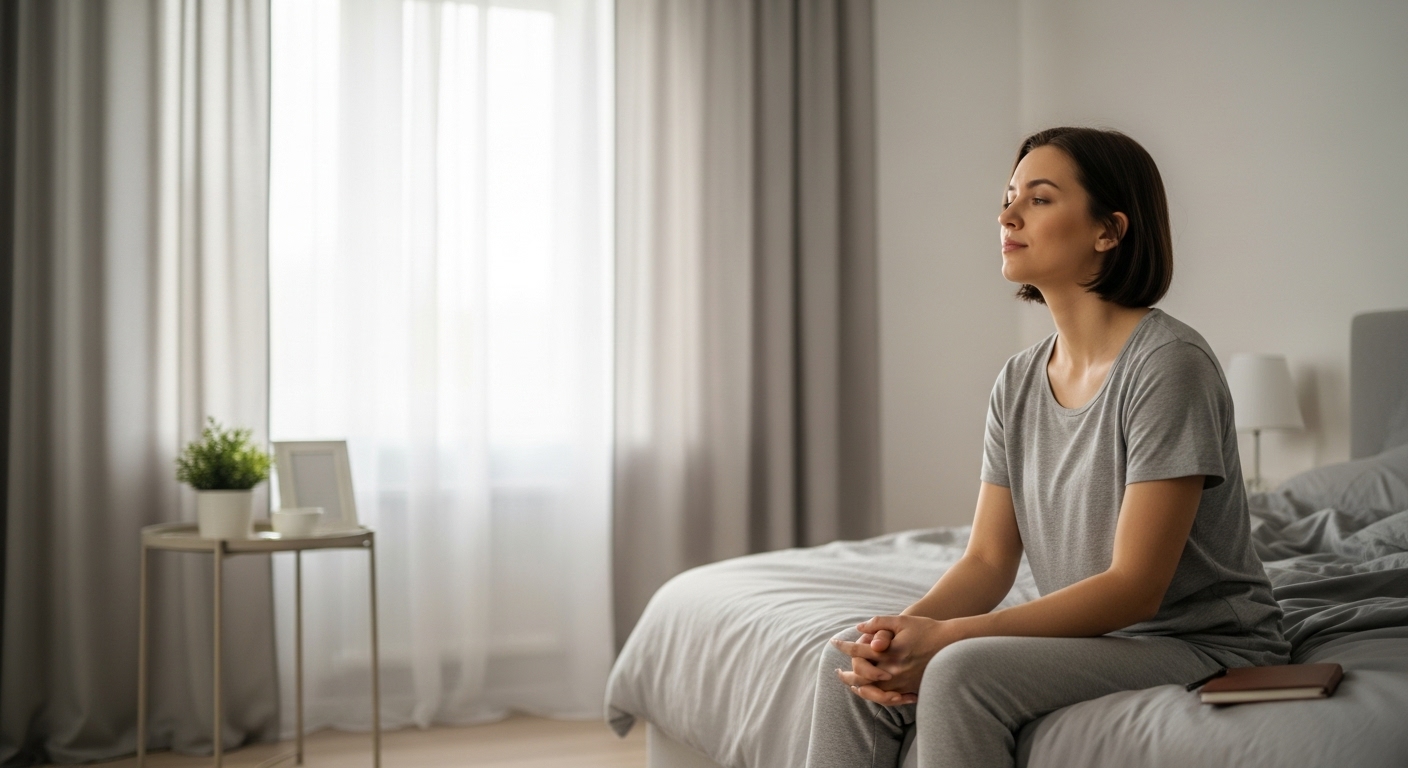
Deep sleep, also known as slow-wave sleep, is essential for cognitive function and emotional regulation. During this stage of sleep, your brain processes information and consolidates memories. It’s also when the body repairs tissues and strengthens the immune system. This stage of sleep acts as a reset button for our cognitive abilities, preparing us for the challenges of the next day.
Without adequate deep sleep, you might experience difficulties with concentration, decision-making, and managing emotions. Over time, poor deep sleep can contribute to mental health issues, including anxiety and depression. The lack of restorative deep sleep can also impair your ability to handle stress, leading to a cascading effect on your emotional well-being. Prioritizing deep sleep is not just about feeling rested; it’s about safeguarding your mental and emotional health.
Depression and Poor Sleep
There’s a strong correlation between depression and poor sleep. Those who suffer from depression often report sleep disturbances, such as insomnia or excessive sleeping. These sleep problems can exacerbate depressive symptoms, creating a vicious cycle. Furthermore, the inability to achieve restful sleep can lead to a sense of hopelessness and exacerbate feelings of fatigue and low energy, common in depression.
Breaking the Cycle
Improving sleep quality can help alleviate some symptoms of depression. Establishing a regular sleep schedule, creating a restful sleep environment, and avoiding stimulants like caffeine before bed can all contribute to better sleep hygiene and, in turn, improved mental health. Incorporating relaxation techniques such as progressive muscle relaxation or guided imagery can also aid in reducing depressive symptoms by promoting a more restful sleep. Investing time in understanding and improving your sleep patterns can serve as a powerful tool in managing depression.
Stress and Insomnia

Stress and insomnia are closely linked. High stress levels can make it difficult to fall asleep or stay asleep, leading to insomnia. This lack of rest can heighten stress levels, creating another cycle that’s tough to break. The psychological impact of stress often extends to physiological responses, such as increased heart rate and heightened alertness, which can further disrupt sleep patterns.
Techniques for Reducing Stress
To manage stress and improve sleep quality, consider incorporating relaxation techniques into your routine. Practices like meditation, deep breathing, and gentle yoga before bed can calm the mind and prepare the body for rest. Engaging in regular physical activity during the day can also help reduce stress levels and improve sleep quality at night. Journaling or engaging in a calming hobby before bed can also serve as effective ways to unwind and transition into a restful state.
The Role of Quality Rest in Mental Health
Quality rest goes beyond just the number of hours you sleep; it’s about how restful those hours are. Good sleep hygiene practices can significantly enhance the quality of your rest. Creating an optimal sleep environment and establishing a consistent bedtime routine are foundational steps in achieving quality rest.
Tips for Better Sleep Hygiene
- Maintain a Consistent Sleep Schedule: Go to bed and wake up at the same time every day, even on weekends. Consistency helps regulate your body’s internal clock and can enhance the quality of your sleep.
- Create a Sleep-Inducing Environment: Keep your bedroom dark, quiet, and cool. Consider using blackout curtains, earplugs, or a white noise machine to create the ideal sleep environment.
- Limit Exposure to Screens Before Bed: The blue light emitted by phones and computers can interfere with your ability to fall asleep. Engaging in relaxing activities like reading a book or taking a warm bath can serve as better pre-sleep alternatives.
- Avoid Large Meals and Caffeine Before Sleep: These can disrupt your sleep cycle and make it harder to fall asleep. Opt for light snacks if necessary and try herbal teas that promote relaxation.
Sleep and Mental Health: A Two-Way Street
The relationship between sleep and mental health is bidirectional. Poor sleep can lead to mental health issues, and mental health problems can interfere with sleep. Addressing one can often help improve the other. This interconnectedness highlights the importance of a balanced approach to both sleep and mental health for overall well-being.
Anxiety and Sleep Problems
Anxiety is another mental health condition closely linked to sleep problems. Those with anxiety disorders often experience racing thoughts that make it hard to fall asleep or stay asleep. The anticipation of not being able to sleep can itself become a source of anxiety, exacerbating the issue further.
Managing Anxiety for Better Sleep
Cognitive-behavioral therapy (CBT) is an effective treatment for anxiety that can also improve sleep. CBT helps individuals understand and change thought patterns that contribute to anxiety and sleep issues. Mindfulness-based therapies can also help individuals become more aware of their thoughts and feelings, reducing anxiety and promoting better sleep.
Improving Sleep for Emotional Well-Being

by Abhijith S Nair (https://unsplash.com/@abhijith__s_nair)
Enhancing sleep quality can have profound effects on emotional well-being. Improved sleep can lead to better mood regulation, increased resilience to stress, and enhanced cognitive function. The benefits extend to increased energy levels and a greater sense of overall life satisfaction.
Steps to Enhance Sleep and Emotional Health
- Prioritize Relaxation: Incorporate calming activities into your evening routine. Consider activities such as listening to soothing music, taking a warm bath, or practicing mindfulness meditation.
- Seek Professional Help if Needed: If sleep problems persist, consider consulting a healthcare provider for guidance. A professional can provide tailored strategies and interventions to address underlying issues.
- Practice Mindfulness: Being present in the moment can reduce stress and improve sleep quality. Techniques such as body scans and mindful breathing can help anchor your awareness and promote relaxation.
Mental Health Benefits of Sleep
The mental health benefits of sleep are extensive. A good night’s sleep can lead to reduced symptoms of depression and anxiety, improved stress management, and enhanced focus and productivity. The restorative nature of sleep plays a critical role in emotional regulation and cognitive resilience.
The Science Behind Sleep and Mental Health
Research continues to explore the complex interactions between sleep and mental health. Emerging studies suggest that improving sleep could be a cost-effective way to prevent and treat various mental health conditions. Understanding the neurochemical processes involved in sleep can offer insights into innovative approaches for mental health interventions.
Conclusion
Understanding the connection between sleep and mental health is vital for improving overall well-being. By prioritizing quality rest and adopting healthy sleep habits, you can support both your physical and mental health. Remember, it’s never too late to start making positive changes to your sleep routine. Quality sleep is a cornerstone of a healthy, balanced life, serving as both a preventive measure and a remedy for mental health challenges.








